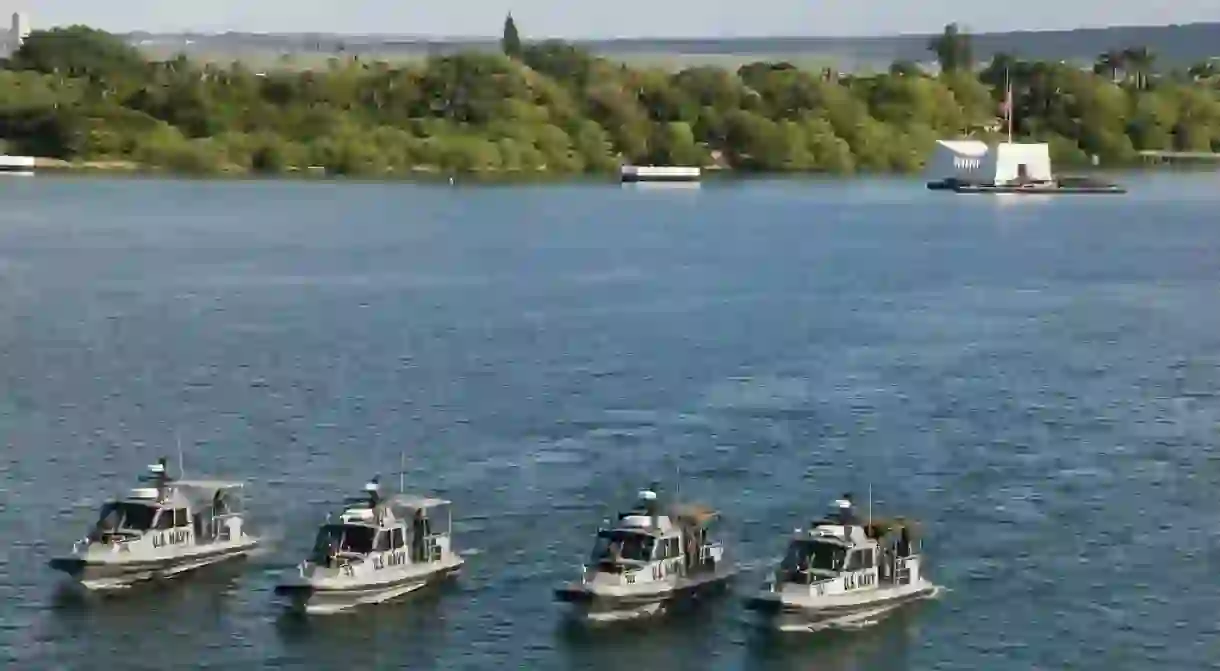The World’s Largest Maritime Festival Is Coming to Hawaii

Twenty-six nations will bring hundreds of boats, submarines, and aircraft to the waters of Hawaii for the world’s biggest maritime festival.
If you see a bunch of battleships and fighter planes massing in Hawaii, don’t panic. What’s happening off the coast of Oahu is not war, but war games. Rim of the Pacific, or RIMPAC, brings over two dozen nations and over 50 boats and submarines to the islands for what the U.S. Navy calls “a unique training opportunity.”
The biennial exercises will cover everything from “disaster relief and maritime security operations to sea control and complex warfighting,” according to the U.S. Navy, and will run from June 27 through August 2, 2018.

The exercises began in 1971 and are “designed to foster and sustain cooperative relationships that are critical to ensuring the safety of sea lanes and security on the world’s interconnected oceans.” This year, ships, submarines, and fighter jets will scramble along with 25,000 service personnel. There will also be several missile-firing exercises, amphibious operations, counter-piracy and other training.
Nations sending forces to this year’s RIMPAC are Australia, Brazil, Brunei, Canada, Chile, Colombia, France, Germany, India, Indonesia, Israel, Japan, Malaysia, Mexico, the Netherlands, New Zealand, Peru, the Republic of Korea, the Republic of the Philippines, Singapore, Sri Lanka, Thailand, Tonga, the United Kingdom, the United States and Vietnam. Brazil, Israel, Sri Lanka and Vietnam are all participating in the exercises for the first time; however, previous participant China was disinvited by Donald Trump.

Of course, it’s not all about the boats and the bombs. There will be 18 concerts by musicians from around the world and a number of sporting events for RIMPAC participants in their off-hours. An “Innovation Fair” will feature exhibitions, displays, contests, and special events, with a special focus on robotics, virtual reality, and other technological advances. After all, when you’re making what the U.S. Navy calls “a robust constellation of allies and partners,” sometimes a little after-hours palling around helps.













